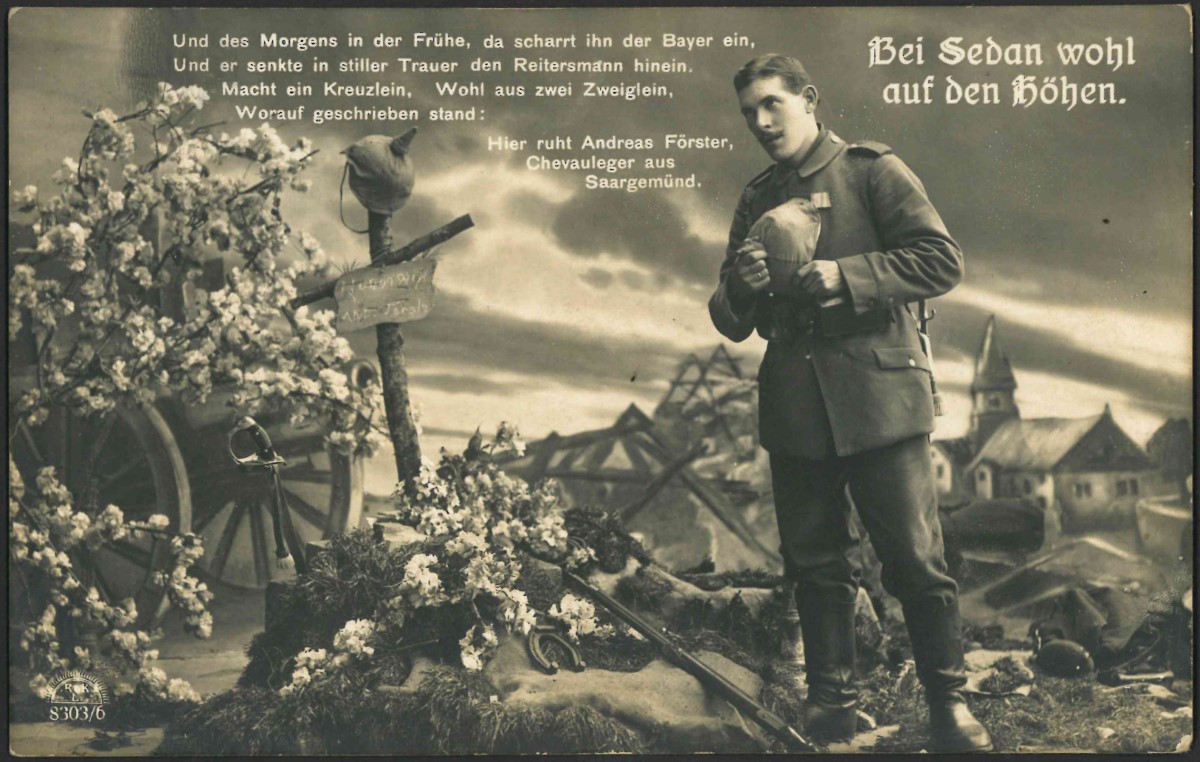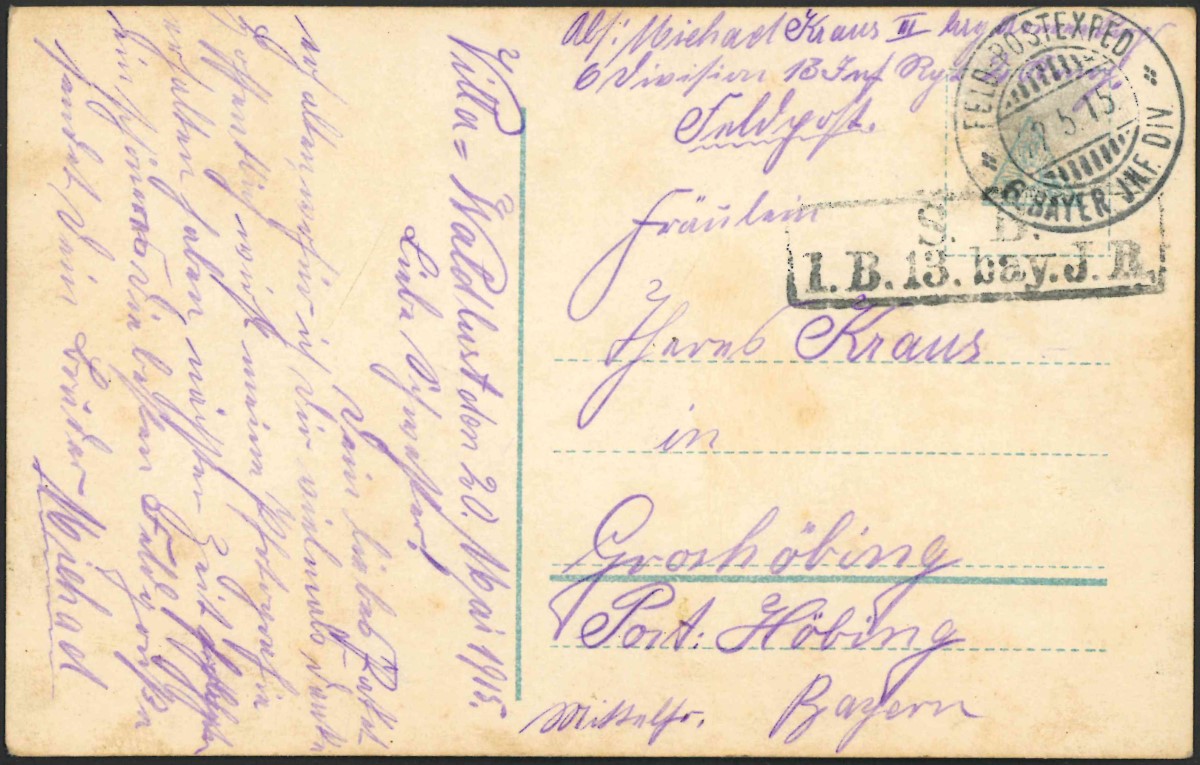FIRST WORLD WAR
(1914-18)
This page was last updated
19-Aug-2023 10:22

BEI SEDAN WOHL AUF DEN HÖHEN
(THE SEDAN HEIGHTS, PROBABLY)
The battle of Noyers-Sedan took place between 25th and 27th Aug 1914 and was an important victory for the Germans. The town was occupied throughout the War from 1914 until 1918 and was a major supply hub for the German army, providing much needed resources for the war effort in northern France and Belgium.
This series of six un-numbered postcards, from an unknown publisher, follows a typical scenario where a wounded soldier lays dying and is comforted in his final minutes by a comrade. The soldier in this story is Andreas Förster, a cavalryman from Saargemünd (now situated in northeastern France on the German border).

No.1
The inscription on the first card reads:Bei Sedan wohl auf den Höhen,
da stand nach blutiger Schlacht
In später Abendstunde ein Bayer auf der Wacht.
Und die Wolken sie ziehen nach Osten,
und die Dörfer stehen in Brand,
Sie beleuchten Wald und Fluren
und den grünen Wiesenstrand.
At Sedan probably on the heights,
there stood
after a bloody battle Late in the evening a Bavarian on duty.
And the clouds they're moving east,
and the villages are on fire,
They illuminate forests and fields
and the green meadow beach.

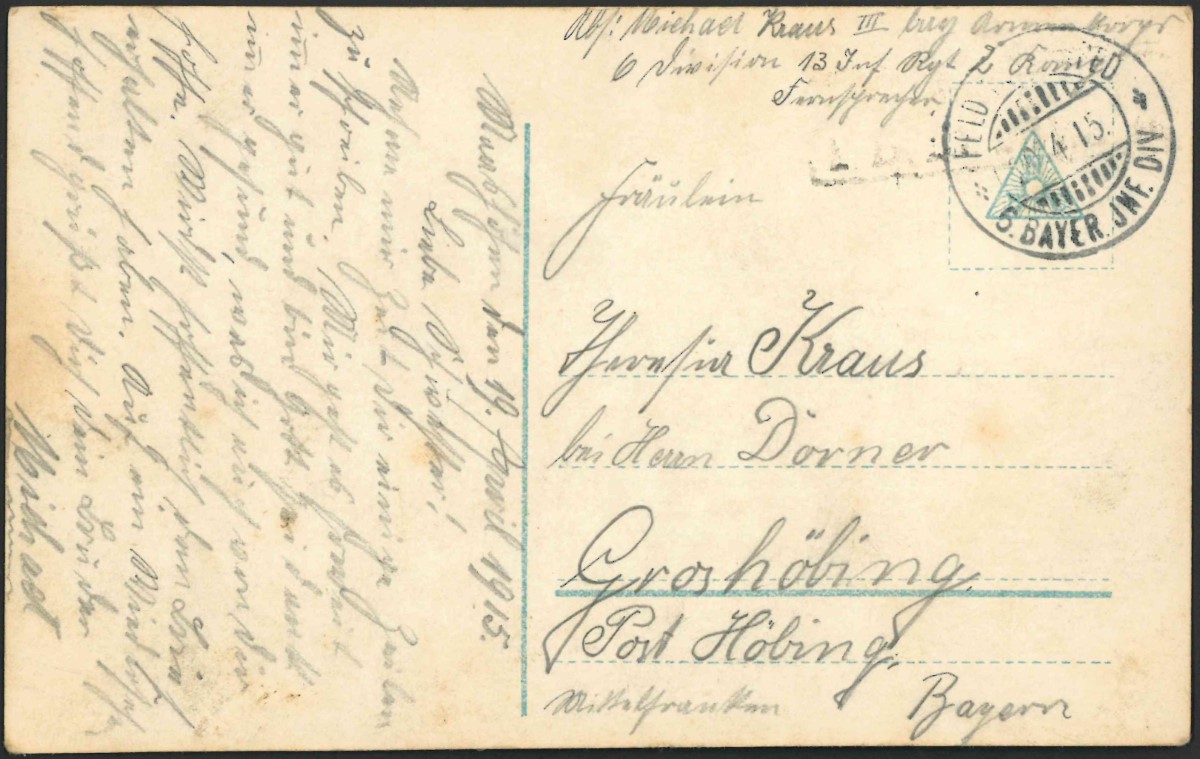


No.2
The inscription on the second card reads:Und der Bayer ging auf und nieder
und beschaut die Totenschaar,
Die noch gestern um diese Stunde,
so frisch und munter war.
Horch, was jammert dort im Busche
und was klagt in bittrer Not
Ach Gott Vater im Himmel,
schick mir einen
sanften Tod.
And the Bavarian walked up and down
and behold the crowd of dead,
The still yesterday at this hour,
was so fresh and cheerful.
Listen, what is waiting there in the bush
and what lamentations in bitter need
Oh God Father in heaven,
send me a
gentle death.
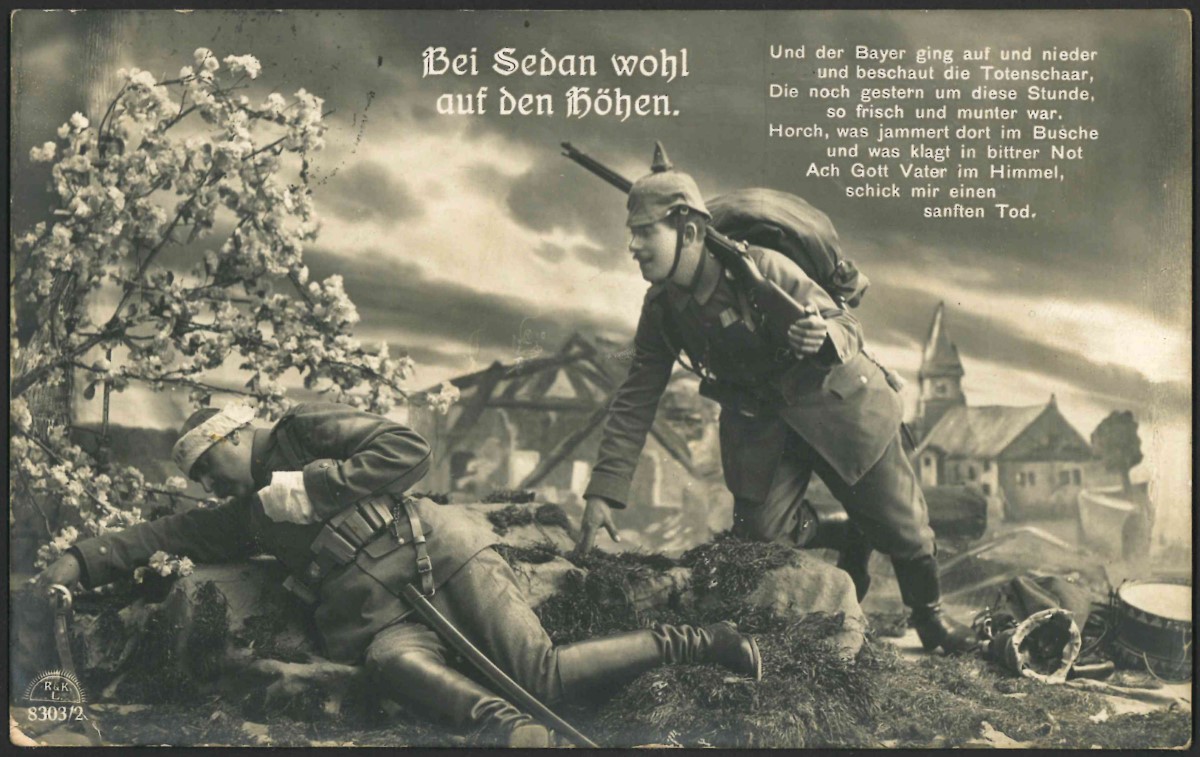
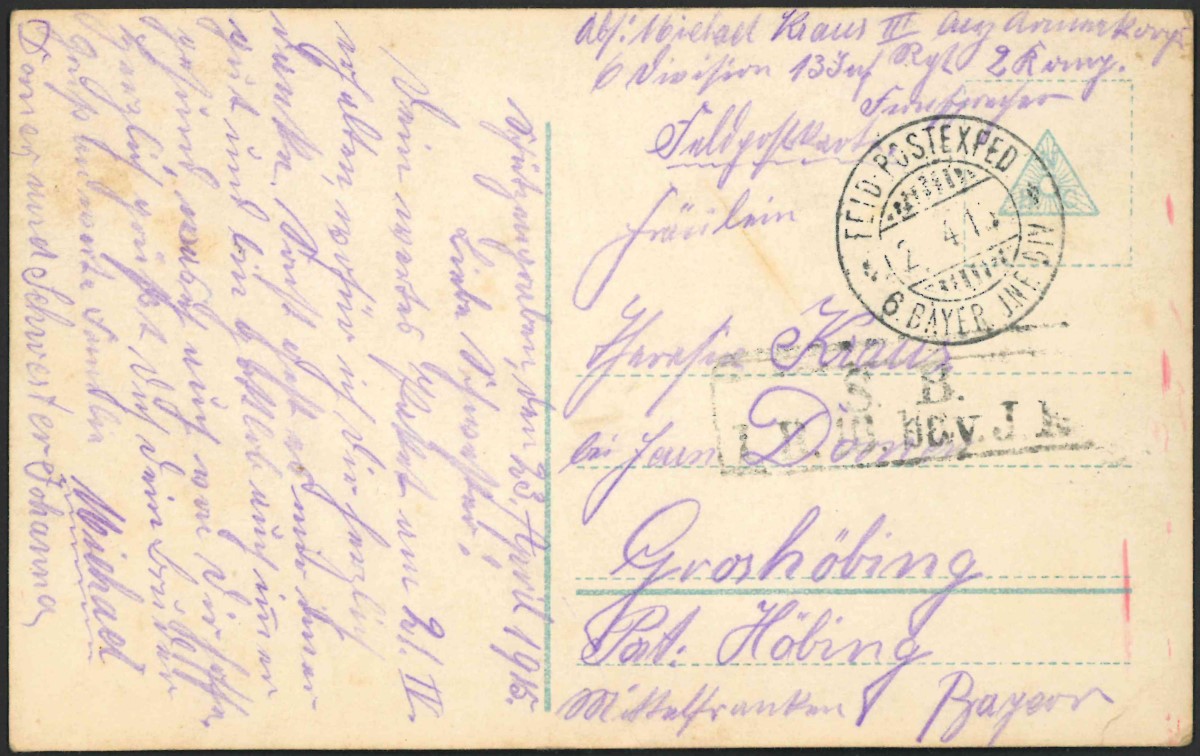


No.3
The inscription on the first card reads:Und der Bayer schleicht sich näher
und findet einen Reitersmann
Mit tief blutender Wunde
in dem Busche bei Sedan.
Reich mir Wasser, deutscher Kamerad,
denn die Kugel sie traf mich gut,
Dort an jenem Wiesenstrande,
da floss zuerst mein Blut.
And the Bavarian sneaks closer
and finds a horseman
With a deep bleeding wound
in the bush near Sedan.
Give me water, German comrade,
for the bullet she hit me well,
There on that meadow beach,
my blood flows first.
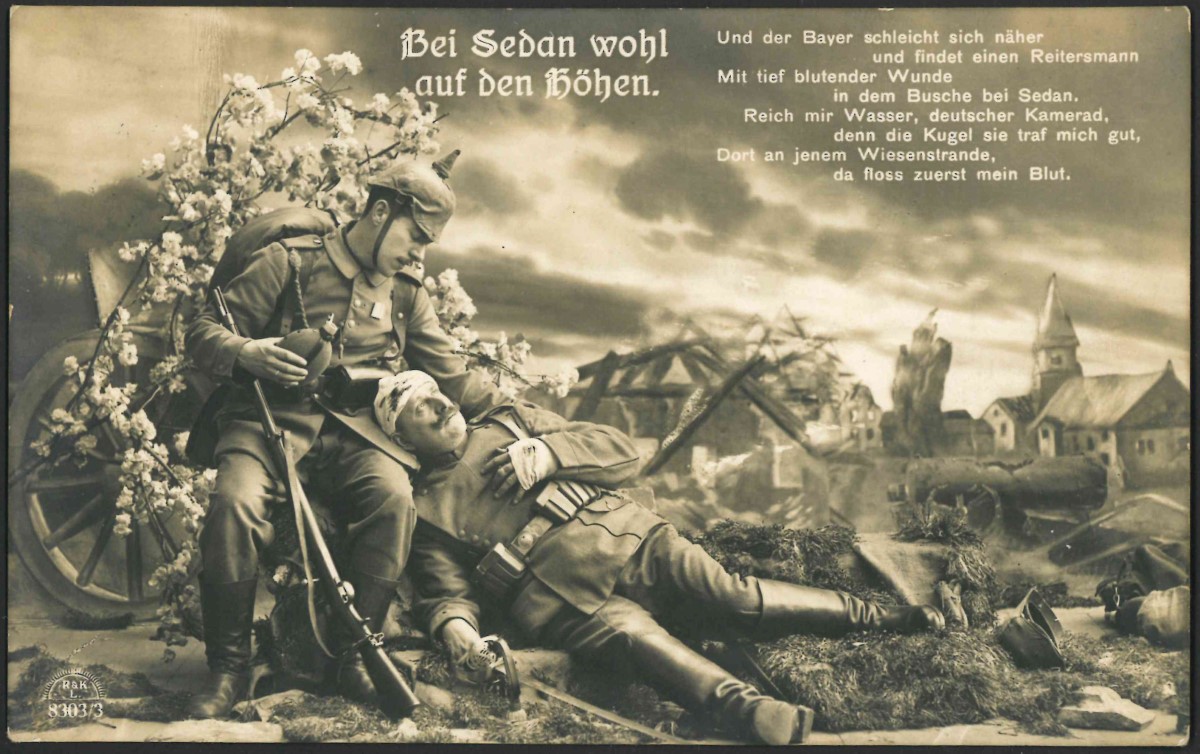
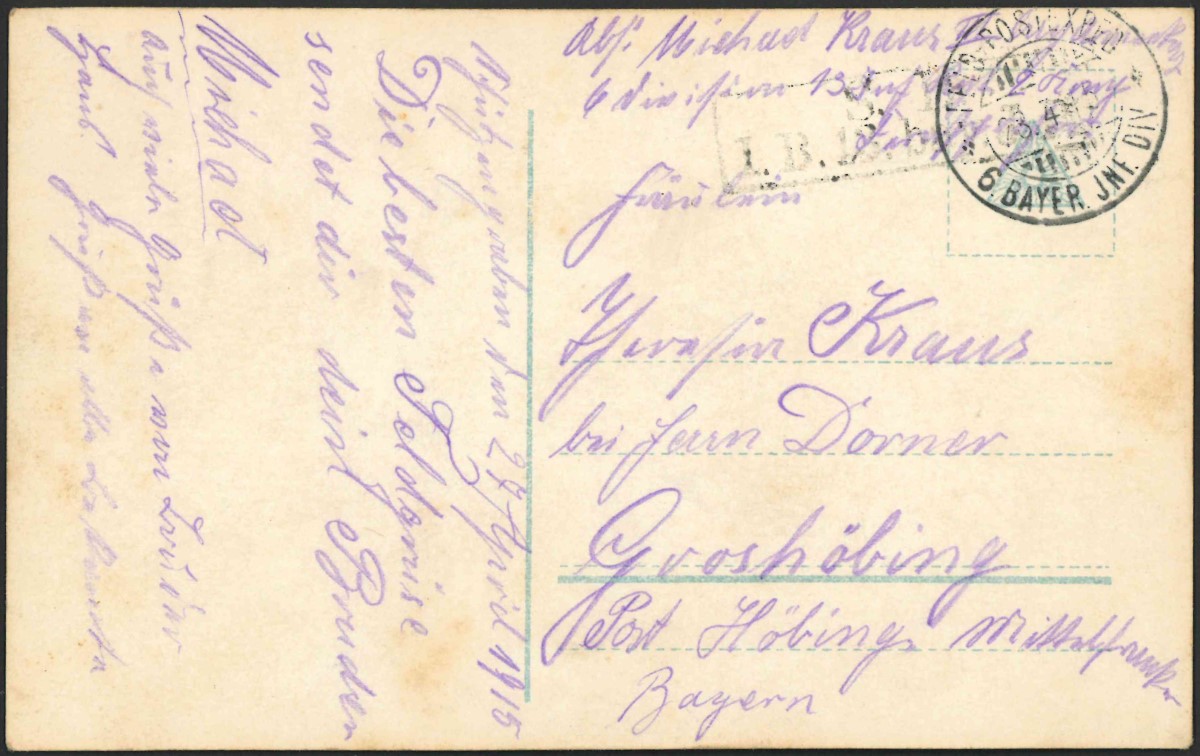


No.4
The inscription on the fourth card reads:Nur eine Bitte, deutscher Kamerad,
grüβe du mein Weib und Kind,
Und ich heiβe Andreas Förster,
Chevauleger aus Saargemünd.
Just one request, German comrade,
greet my wife and child,
And my name is Andreas Förster,
Cavalryman from Saargemünd.
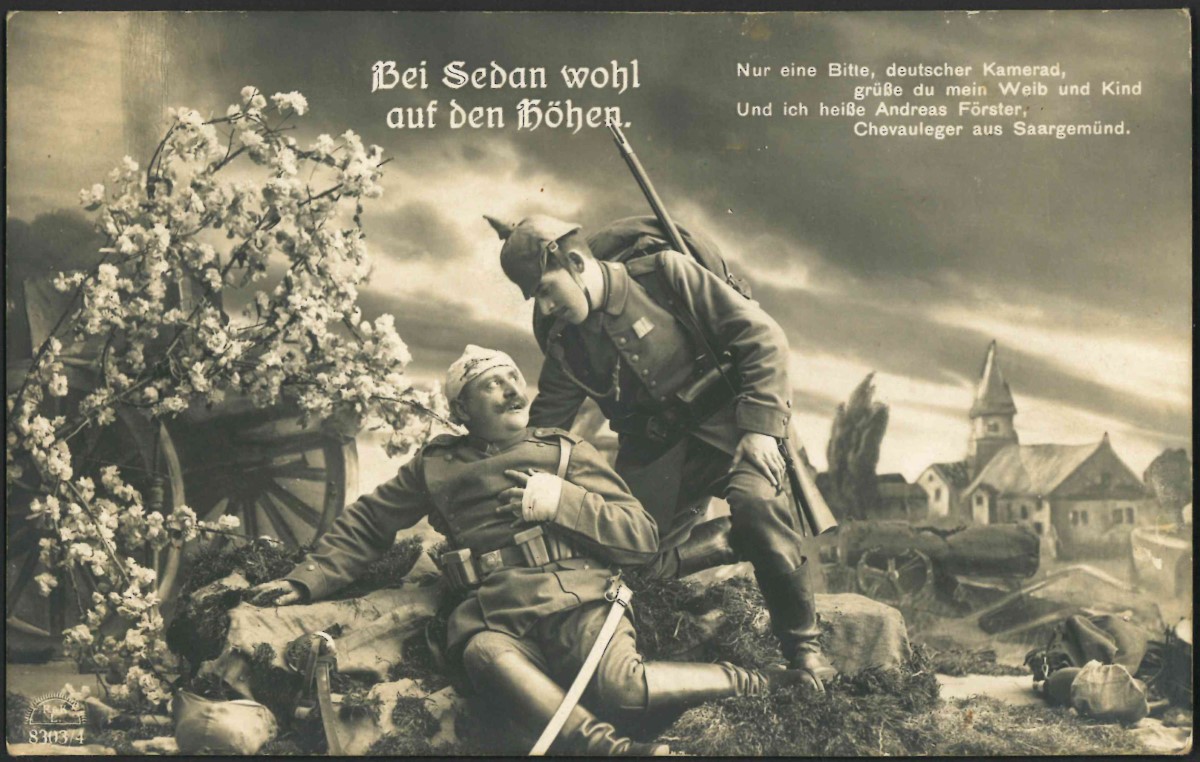
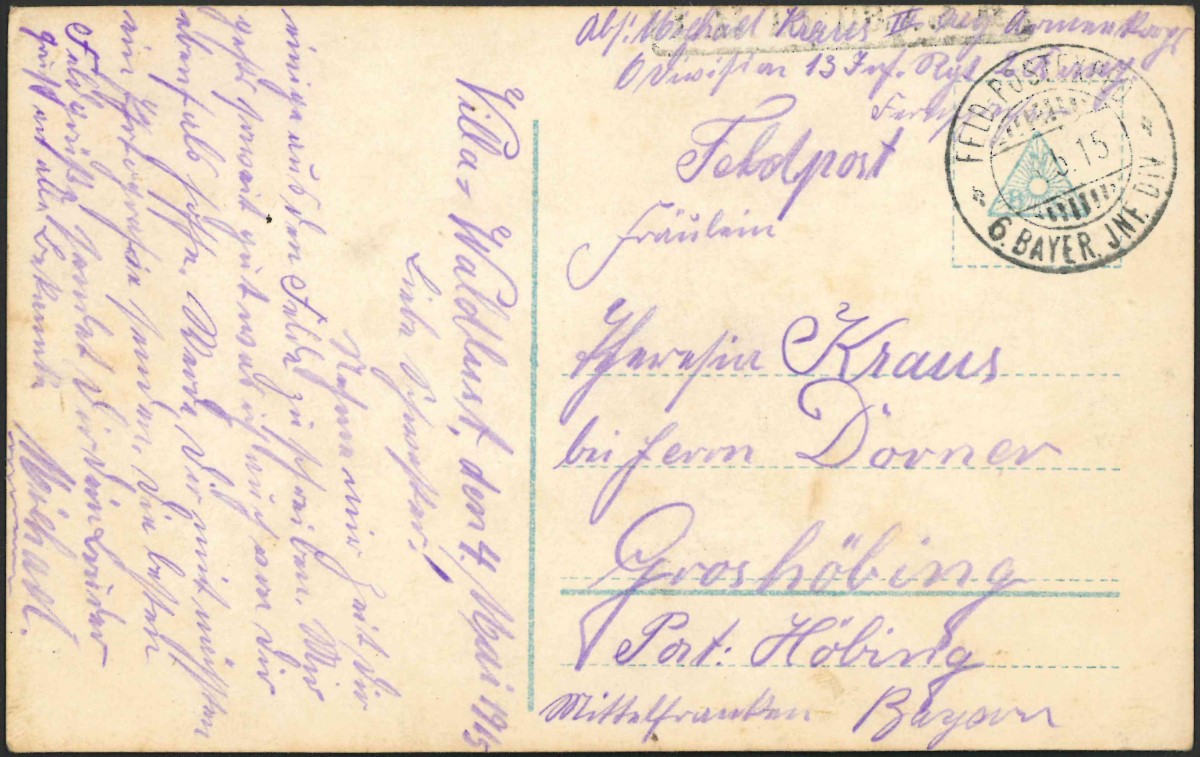


No.5
The inscription on the sixth card reads:Scharr mich ein in die Kühle Erde,
beim frühen Morgenrot
Er sprachs und es brach sein Auge
und der Reitersmann war tot.
Draw me into the cool earth,
at early dawn
He said it and broke his eye
and the horseman was dead.
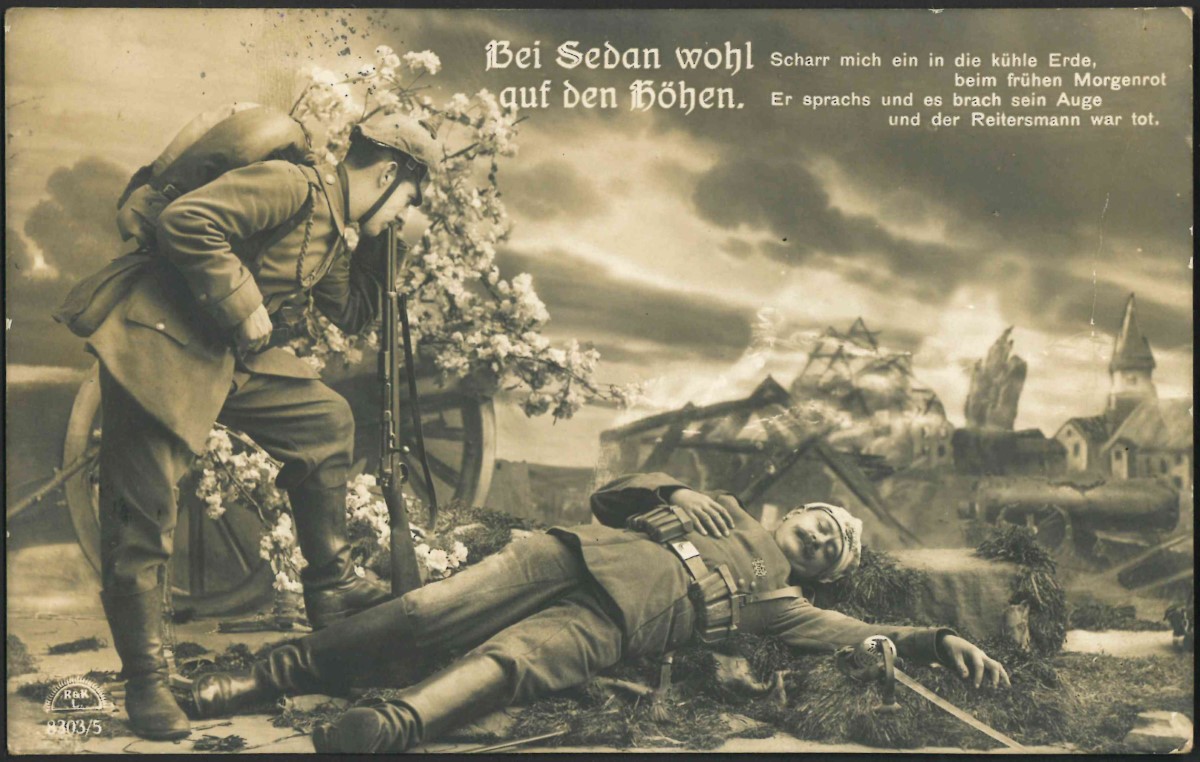
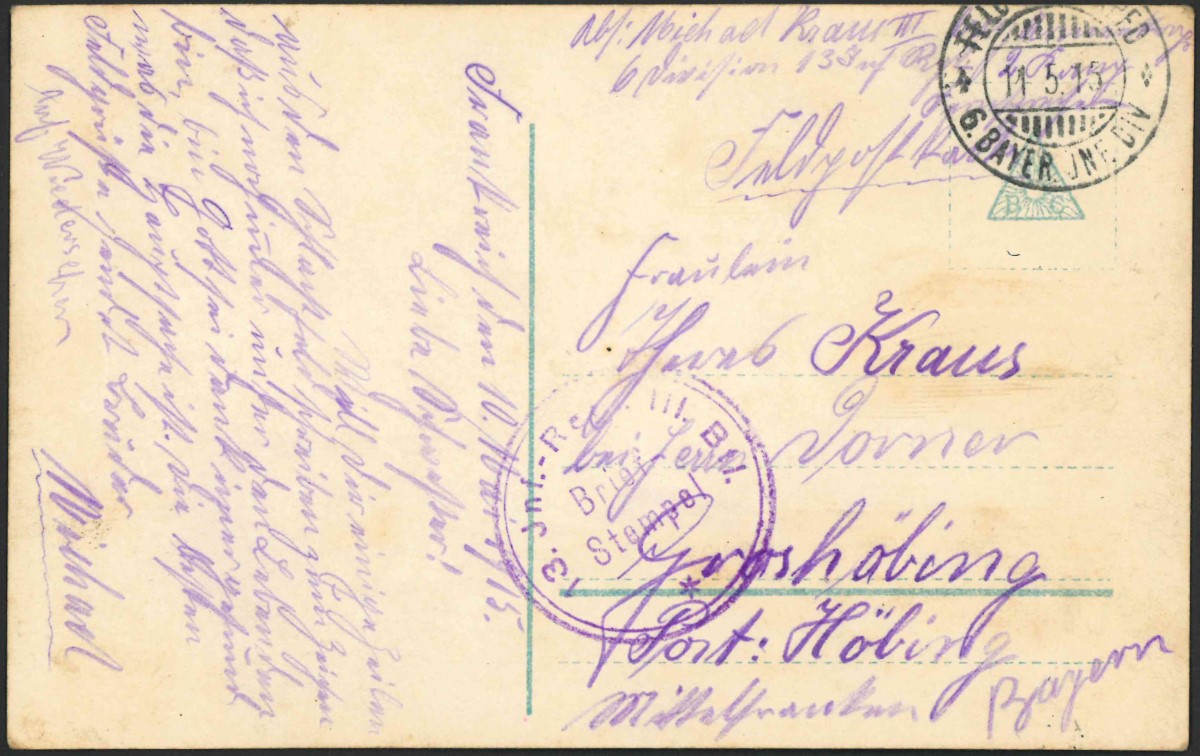


No.6
The inscription on the sixth card reads:Und des Morgens in der Frühe, da scharrt ihn der Bayer ein,
Und er senkte in stiller Trauer den Reitersmann hinein.
Macht ein Kreuzlein, Wohl aus zwei Zweiglein,
Worauf geschrieben stand:
Hier ruht Andreas Förster,
Chevauleger aus Saargemünd
And early in the morning, the Bavarian digs him in,
And in silent sorrow he lowered the horseman into it.
Make a little cross, probably from two little branches,
What was written:
Here rests Andreas Förster,
Cavalryman from Saargemünd
